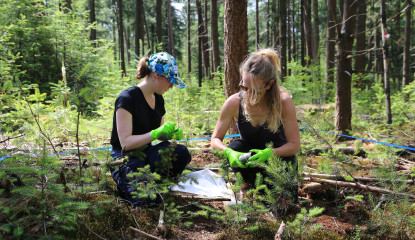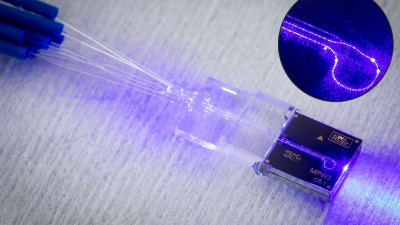BIOSPACE: Monitoring Biodiversity From Space

The BIOSPACE project is transforming how we study and protect biodiversity, the variety of life that supports healthy ecosystems. As climate changes and human activities disrupt habitats, many species are struggling to survive. Biodiversity loss happens at many different levels, and the fine granular scale that the BIOSPACE project measures is an active area of research and development.
Since 2019, the BIOSPACE team has gathered environmental samples from forests in Europe, including Finland, Germany, and the Netherlands, while also using open-source data from North America. The team combined these samples with fieldwork and satellite images to ensure accuracy.
Prof. dr. Andrew Skidmore (University of Twente): “By looking at environmental DNA within a teaspoon of soil, or on the surface or inside of a leaf, you can potentially identify the thousands of species teeming in the forest ecosystem.”
Impact
Led by Prof. Dr. Andrew Skidmore, BIOSPACE combines two innovative techniques—environmental DNA (eDNA) and satellite imaging—to understand these changes on a global scale. Environmental DNA is a method that collects genetic material from the environment, such as soil, water, or air, to identify the organisms living there. Even small samples can reveal the hidden diversity of an entire ecosystem. The project pairs the eDNA data with remote sensing from satellites, which can provide a broad and detailed view of landscapes and habitats. Together, these tools create a powerful system for studying biodiversity across the planet. This allows us to eventually monitor biodiversity from space using a new generation of satellites and contribute to meeting the UN Sustainable Development Goals.
BIOSPACE was awarded €2.5 million from the European Commission. BIOSPACE project was implemented in collaboration with Wageningen University and Research, Macquarie University (Australia), National Park Bayerischer Wald, SYKE, Het Nationale Park De Hoge Veluwe, Nationaal Park Veluwezoom and Kroondomein Het Loo.
More info: https://www.bio-space.nl/

